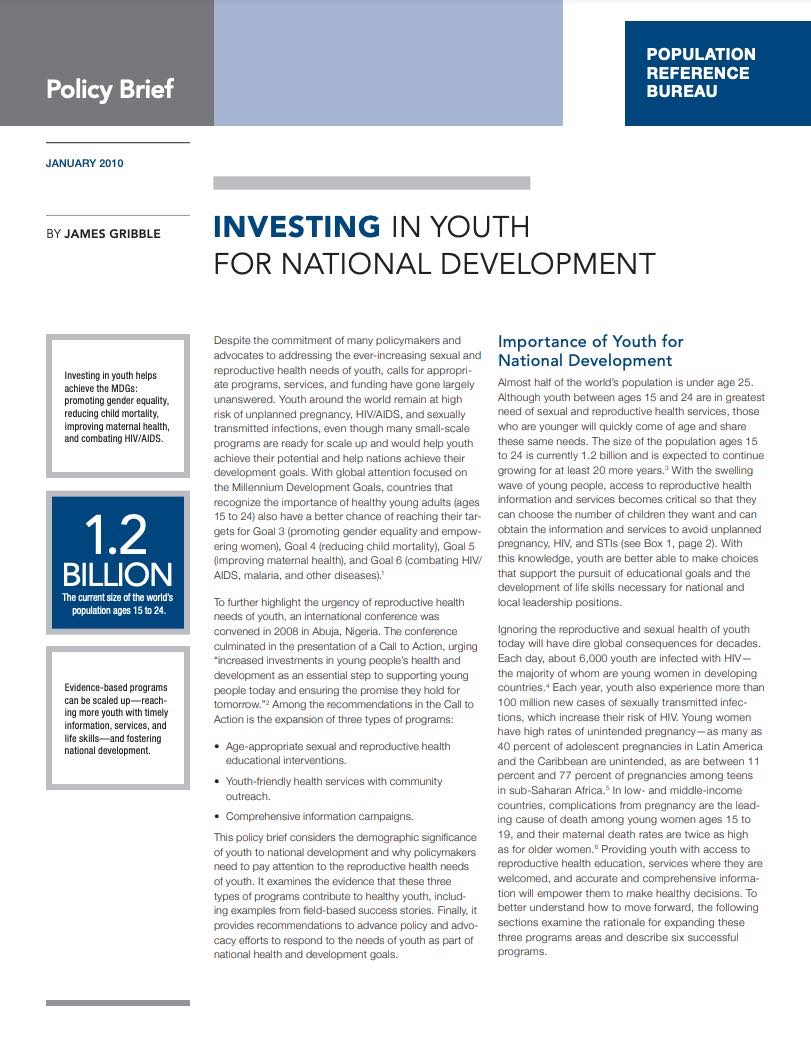
Investing in Youth for National Development
(February 2010) Despite the commitment of many policymakers and advocates to addressing the ever-increasing sexual and reproductive health needs of youth, calls for appropriate programs, services, and funding have gone largely unanswered. Youth around the world remain at high risk of unplanned pregnancy, HIV/AIDS, and sexually transmitted infections, even though many small-scale programs are ready for scale up and would help youth achieve their potential and help nations achieve their development goals. With global attention focused on the Millennium Development Goals, countries that recognize the importance of healthy young adults (ages 15 to 24) also have a better chance of reaching their targets for Goal 3 (promoting gender equality and empowering women), Goal 4 (reducing child mortality), Goal 5 (improving maternal health), and Goal 6 (combating HIV/ AIDS, malaria, and other diseases).
To further highlight the urgency of reproductive health needs of youth, an international conference was convened in 2008 in Abuja, Nigeria. The conference culminated in the presentation of a Call to Action, urging “increased investments in young people’s health and development as an essential step to supporting young people today and ensuring the promise they hold for tomorrow.” Among the recommendations in the Call to Action is the expansion of three types of programs:
- Age-appropriate sexual and reproductive health educational interventions.
- Youth-friendly health services with community outreach.
- Comprehensive information campaigns.
This policy brief considers the demographic significance of youth to national development and why policymakers need to pay attention to the reproductive health needs of youth. It examines the evidence that these three types of programs contribute to healthy youth, including examples from field-based success stories. Finally, it provides recommendations to advance policy and advocacy efforts to respond to the needs of youth as part of national health and development goals.
James Gribble is vice president, International Programs, at the Population Reference Bureau.

 ">
">